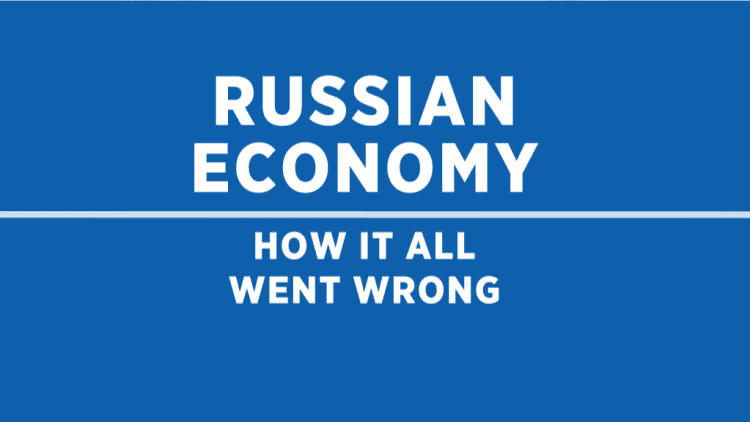The extraordinary volatility in the ruble this week suggested that many traders and investors were caught off guard by events in Russia.
Volatile trading on Wednesday saw the currency gain over 10 percent against the dollar, but it remains down 13 percent on the week.
Yet there were plenty of red flags for Russia-watchers, some of which are outlined here.
West wages economic warfare
After more than a decade of problematic interventions in the Middle East, Western countries' appetite for further military conflict is low -- as can be seen by the more cautious approach to intervention in Syria and Iraq.
Waging economic warfare, on the other hand, while it might lead to slightly reduced economic growth in countries like Germany, is much less emotive.
Russia’s unbalanced economy

For years, the Russian government has been saying that the country's economy will diversify beyond oil and commodities. For as many years, it has continued to rely on them. As such, when an oil price rout came, and the Organization of the Petroleum-Exporting Countries (OPEC) decided not to reduce supply to prop up the oil price, Russia's economy looks to be in big trouble.
Central bank's lack of intervention
The Central Bank of Russia's (CBR) performance this year has come under fire, with critics flagging it as an example of how not run a central bank during a crisis.
It has been "breaking all the rules of central banking", according to Tim Ash, head of emerging markets research at Standard Bank, by not hiking rates soon enough and being too "timid" in its eventual intervention.
One explanation, proffered by Anders Aslund, senior fellow at the Peterson Institute, is that the CBR may not have the immediately-usable foreign reserves that many think. Instead, large amounts are part of the country's sovereign wealth funds or have already been promised for infrastructure projects.
Others have said the central bank's policymakers are lacking the requisite experience, or under more direct political influence than elsewhere. Either way, expecting the bank to intervene in the way the European Central Bank or the U.S. Federal Reserve might seems a little optimistic.
Putin not for turning
The Russian President's increasingly overt nationalism and near-autocratic rule, which seem to chime with the Russian people who elected him, has been flagged for years.
Indeed, many investors profited from the apparent stability offered by his rule. Yet there were plenty of signs that the top echelons of Russian business were not ready for Western-style capitalism. Dissent, even from high-profile investors like BP, was rarely tolerated, as the oil major's current chief executive Bob Dudley found out in 2008 when his visa was revoked and he was questioned by Russian police.
- By CNBC's Catherine Boyle




